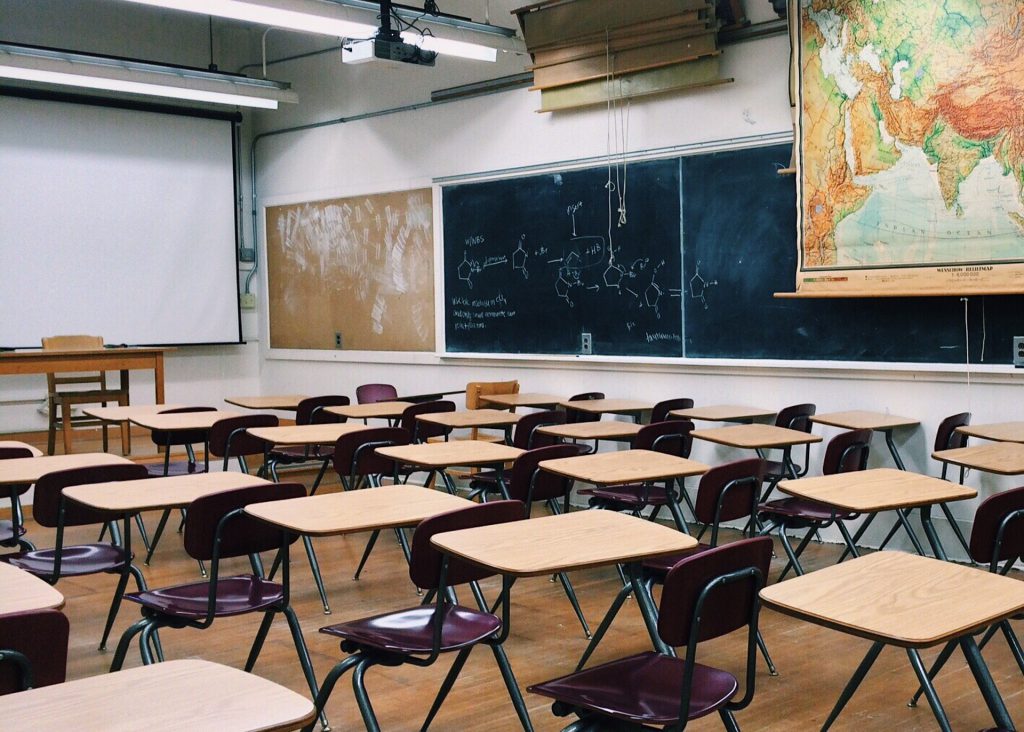School Choice Splits Legislators, Educators
Republican bill removes all limits on voucher program, as Democrats predict huge costs.
The fight over removing all limits on the Parents’ Choice program, which lets K-12 students attend private schools with tax funds, dramatizes the Capitol debate over how well the next generation is learning, or not learning.
The Republican-controlled Assembly last week passed, 59-34, a bill removing family income and enrollment limits for students who get state-issued vouchers to attend private schools – a change the state Department of Public Instruction warned could raise property taxes outside Milwaukee by $577 million. Republican senators are expected to also pass that change, inviting another veto by Democratic Gov. Tony Evers, a former state superintendent of public instruction and longtime voucher critic.
“In 2018, Wisconsin’s schools were ranked 18th in the nation,” a statement from the governor’s re-election campaign declared last week. “Fast forward to today, and under Gov. Tony Evers’ common sense leadership, Wisconsin’s education system has propelled forward 10 spots to eighth best in the nation, according to U.S. News and World Report.”
But those who want to remove limits on Choice say Wisconsin’s K-12 system has slipped so badly that all parents need the option of private schools, no matter their family income. “Recent results show less than 40 percent of Wisconsin’s middle schoolers can read at a proficient level,” Assembly Majority Leader Jim Steineke said. “For someone who prides [himself] on being an ‘education governor,’ Tony Evers has failed.”
Steineke added: “Wisconsin’s test scores declined over the past decade. A 2013 article listed the average state ACT score at 22.1. That number recently fell to 19.8. Younger students are also seeing similar trends. According to the 2021 Forward Exam, only 34% of Wisconsin middle schoolers can read proficiently and only 33% are proficient in math. This constitutes a 7% drop in reading scores and nearly a 10% drop in math scores since 2019.”
No state education program has grown faster than Choice, which started with 300 low-income Milwaukee students in the 1990-91 school year. Republican legislators expanded it to Racine in the 2011-12 school year and statewide in 2013-14, subject to both family income and enrollment limits.
According to a Legislative Fiscal Bureau summary, more 44,500 students participated in Choice in the 2020-21 school year: 28,583 in Milwaukee, 3,835 in Racine and 12,111 in the statewide program. That total does not include special education students, who became eligible about seven years ago.
The Department of Public Instruction (DPI), in its analysis of the impact of the Assembly-passed bill, assumed that most students now attending private schools whose families are paying full tuition would enroll in the expanded Choice program, if it became law.
DPI estimated that removing enrollment and income limits could add more than 67,800 students statewide to Choice, more than doubling it in one year. Because public school districts can raise property taxes to offset state aid lost for each student who transfers to a private school, those changes could raise property taxes by $577 million for districts outside Milwaukee and by $2 million in Milwaukee, DPI projected.
Public school district administrators and school board members oppose expanding Choice. But James Bender, a former Capitol aide now lobbying for School Choice Wisconsin, told the Milwaukee Journal Sentinel that DPI made “an extravagant claim about huge influxes of students,” starting this fall.
DPI officials “know it’s false,” Bender added. “I know it’s false. They did it anyway to drive a political narrative.”
Private schools statewide “can’t afford” to admit significantly more Choice students until their tuition payments from state government are raised, Bender said. In the next school year, those payments will be $8,399 for kindergarten through eighth grade students and $9,045 for ninth through 12th grade students.
Choice has been dividing elected officials, parents and educators since the late-1980s. It still does.
Steven Walters started covering state government in 1988. Contact him at stevenscotwalters@gmail.com
If you think stories like this are important, become a member of Urban Milwaukee and help support real, independent journalism. Plus you get some cool added benefits.
The State of Politics
-
RNC Brings Fame to Gen Z Party Leader
 Jul 15th, 2024 by Steven Walters
Jul 15th, 2024 by Steven Walters
-
Wisconsin’s Republican Roots Run Deep
 Jul 8th, 2024 by Steven Walters
Jul 8th, 2024 by Steven Walters
-
Feuding Supreme Court Justices Need a Break
 Jul 1st, 2024 by Steven Walters
Jul 1st, 2024 by Steven Walters























School choice is the civil rights movement of our time! If we come together we can make it happen for our poor children of color in the state . This is The only way to tear down the institutional racism that keeps poor children of color in failing public schools.
Is it a “civil right” for wealthy families with students in religious schools to have the government pay for their children’s religious education when these families and the church communities choose not to? If the Republicans are so concerned about the poor, why do they continually cut back on safety net programs like medical care, food stamps and unemployment insurance and often demand a drug test when applying?